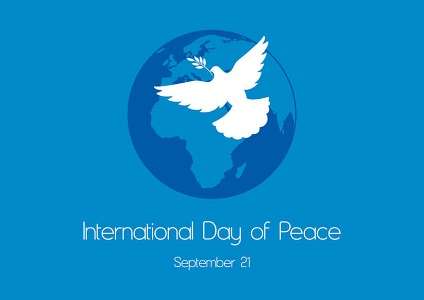International Day of Peace: Nurturing a World of Harmony

The International Day of Peace, celebrated on September 21st each year, is a global call for ceasefires, non-violence, and dialogue. Established by the United Nations in 1981, this day serves as a reminder of the importance of peace in a world often marred by conflict and turmoil. It is an opportunity to reflect on the need for cooperation, understanding, and the pursuit of common goals to build a better world for current and future generations. This article explores the significance of the International Day of Peace and the role each of us can play in fostering a more peaceful world.
The Origin and Purpose
The International Day of Peace was first celebrated in 1982 and was dedicated to “commemorating and strengthening the ideals of peace both within and among all nations and peoples.” It is a day marked by the global cessation of hostilities and a commitment to promoting peace, harmony, and tolerance. The day’s focus extends beyond the absence of war and conflict to encompass broader themes like social justice, human rights, and sustainable development.
The theme for each year is carefully chosen to address contemporary challenges and opportunities related to peace. This day provides a platform for individuals, communities, and nations to reaffirm their commitment to peace and engage in activities that foster understanding, respect, and cooperation.
The Current State of Peace
As we celebrate the International Day of Peace, it is essential to acknowledge the complexities of the current global landscape. While progress has been made in various areas, numerous regions still grapple with conflict, violence, and instability. The COVID-19 pandemic has further highlighted the importance of global cooperation and solidarity in addressing shared challenges.
Armed conflicts, political tensions, and social inequalities persist in many parts of the world. Climate change, resource scarcity, and economic disparities are additional factors that can contribute to unrest and insecurity. It is evident that building a more peaceful world requires multifaceted efforts and a collective commitment to addressing these underlying issues.
Individuals and Peace
While governments and international organizations play a crucial role in advancing peace, individuals also have a significant part to play. Peace begins at a personal level, with each of us contributing to a more peaceful world through our actions, attitudes, and choices.
Acts of kindness, empathy, and tolerance can create a ripple effect in our communities. Engaging in constructive dialogues, promoting understanding between different cultures, and advocating for justice and equality are ways individuals can make a difference. Moreover, supporting initiatives that work toward conflict resolution, education, and humanitarian assistance can have a positive impact on global peace.
Youth and Peace
The younger generation, in particular, holds the key to a more peaceful future. Empowering young people to become active agents of peace is vital. Their energy, creativity, and idealism can drive positive change in the world. Educational programs that promote peace and conflict resolution skills, as well as youth-led initiatives, play a crucial role in nurturing a culture of peace.
Conclusion
On this International Day of Peace, let us remember that peace is not just the absence of conflict but a state of harmony, justice, and cooperation. It is a shared responsibility that requires the participation of individuals, communities, and nations. As we reflect on the challenges facing our world, let us also recognize the potential for positive change that lies within each of us. By working together, we can nurture a world of peace, where all people can live in dignity, freedom, and security.
Tags:
Best teachers in every subject.
Let’s get started
We can teach you anything
